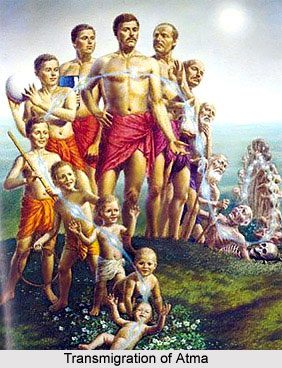I was reading on Facebook a critique of the modernist Buddhist interpreter Stephen Batchelor’s objections to the doctrine of rebirth (and because they are tied up intimately within Buddhist thought, karma). It is a subject of considerable power among many of my friends. Okay, I think about it, as well.
But, among the thickets of opinions on the subject a sub-thread emerged discussing materialism and scientism. Often those who are in support of the traditional Buddhist view of rebirth or the Hindu and neoHindu views reincarnation, which are different from rebirth in substantive ways but also share some similarities, cry foul when investigated. They either assert the project itself is mere materialism. Or, they say it is a misdirection caused by scientism. From that we can infer scientism is something bad. As is materialism.
I have problems with scientism and materialism, myself. For me scientism is bad because it substitutes vague appeals to science as if they were some sort of argument. And I find materialism not useful because it posits a dualism in the universe I don’t actually see.
However, when applied to the questions of post mortem reanimation it appears these arguments are meant to silence the actual challenges to the validity of this view by a) suggesting applying scientific principles to an investigation is itself scientism, a circular argument. and b) preemptively dismissing any evidence based in materiality, that is actual evidence based information within the natural world, as materialism.
And for an alternative people step forward to offer an “authentic” science that supports their views. There are a host of, well, the technical term if they’re not frauds, is cranks, who can marshal long lists of anecdote in support of their opinions as if anecdote by itself is proof in a scientific sense, or, more complicatedly, by citing “research” that does not seem to be replicable. And, I would add, all the while they assume a rather smug “there are more things in heaven and earth, Horatio” predicated, it certainly seems on a rather pure appeal to authority, in the case of both Buddhists and Hindus appeal to the ancestors.
So, my point in this briefest of reflections is not the actual validity of the various assertions of post mortem reanimation, but what is a scientific approach to the question. Science after all is messy. It is rooted in simple empiricism, looking closely at things. But, over the ages it has been honed to a rather sharp instrument.
And trying to define science as it is used by most scientists today, I would like to point folk to the 1981 McLean v. Arkansas Board of Education ruling. It is a fascinating bit of case law that circles around the issue of teaching “creation science.” And it established some very clear guidelines for what science is, which I believe might be useful not only for those concerned with the questions of the validity of belief in any form of post mortem reanimation, but for any assertions about things that happen in this world in which we live and die.
As it happens science has five marks.
1) It is guided by natural law
2) It has to be explanatory by reference to natural law
3) It is testable against the empirical world
4) Its conclusions are tentative, i.e. are not necessarily the final word
5) It is falsifiable.
If the investigation of any claimed phenomena adheres to these rules, we’re talking scientific investigation.
If not, well, not.
You don’t have to like it. You don’t have to want it to be true or false. It is simply a damn good way to figure out if when someone claims something has happened, whether it has, or has not.
Not the last word on meaning and purpose in life, but a good way to approach what is happening and how it is happening…













